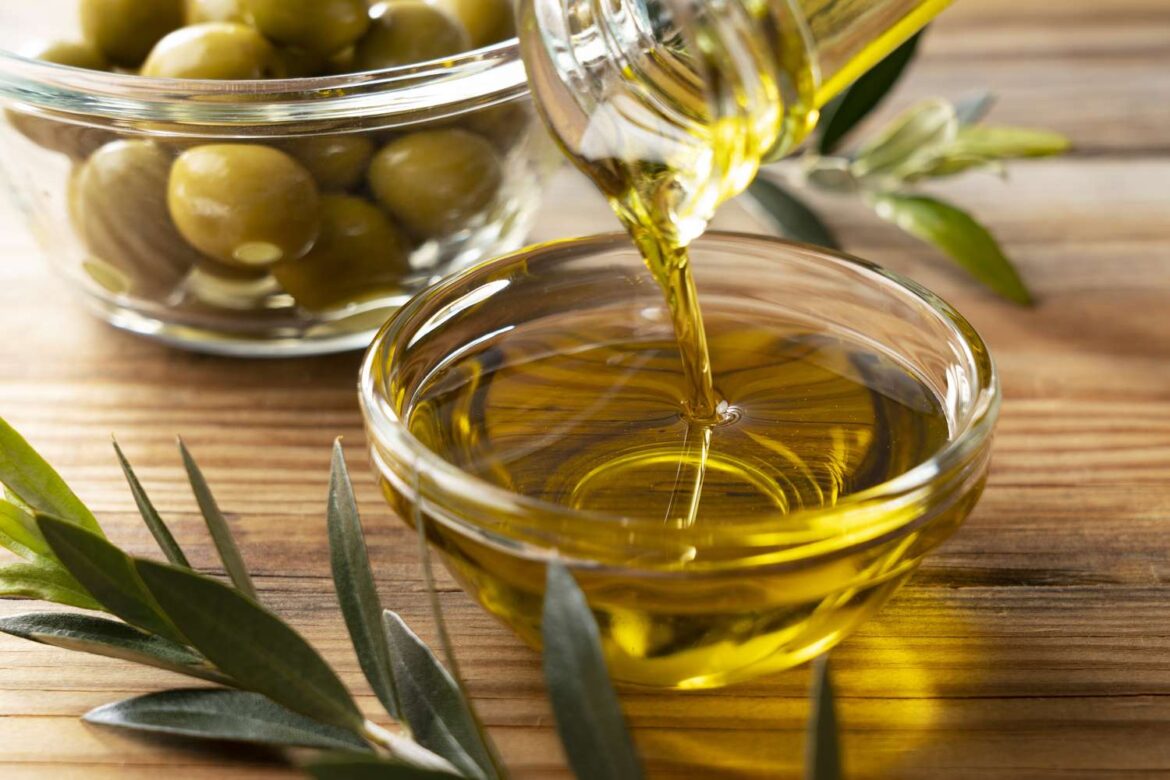You’ve probably heard that olive oil should be avoided when cooking at high temperatures because of its low smoke point. However, research suggests that unrefined extra-virgin olive oil (EVOO) is quite stable and safe to cook with.
Oxidative Stability Matters More Than Smoke Point
Instead of focusing on smoke point, experts say oxidative stability, or how easily an oil oxidizes and breaks down, is a better measure of quality and safety.
When this breakdown occurs, oils can produce toxic byproducts, called polar compounds, which have been shown to affect human health negatively.
However, a 2018 study found that extra virgin olive oil is much more stable than refined oils, forming fewer polar compounds when heated.
“Generally, unrefined oils have greater stability with fewer polar compounds,” said Samantha M. Coogan, MS, RDN, director of the didactic program in nutrition and dietetics and senior lecturer at the University of Nevada, Las Vegas. “So if you compare EVOO to refined olive oil, you’ll see fewer polar compounds in EVOO vs. refined olive oil and refined oils in general.”
In the study, investigators concluded that extra-virgin olive oil is the most stable when heated, followed closely by coconut and other virgin oils, such as avocado and high oleic acid seed oils.
Antioxidants Protect Olive Oil From Degrading in Heat
Research has shown that extra-virgin olive oil’s stability comes from its antioxidants, specifically phenolic compounds. Antioxidants protect it from degradation while heated and extend its shelf life.
Another study found that although fatty acids and minor compounds in extra-virgin olive oil are degraded somewhat by heat, it is arguably the most suitable oil for cooking due to its high content of monounsaturated fatty acids, which are more resistant to oxidation than polyunsaturated fatty acids.
The study authors said phenolic compounds and other antioxidants found in extra-virgin olive oil protect fatty acids and vitamins from degrading in the heat.
Olive Oil’s Smoke Point Isn’t Even That Low
While smoke point may not be the best way to assess whether an oil is safe to cook with, it is worth noting that extra-virgin olive oil’s smoke point isn’t even that low.
According to research, the first decomposition stage for extra-virgin olive oil appeared between 260 and 360 °C, the second between 360 and 398 °C, and the third between 395 and 450 °C.
If you’re using it to pan fry on your stove, it’s unlikely to reach any of these high temperatures.
“For many years, it’s been recommended against using it for high heat cooking, but the data supports that degradation occurs at temperatures similar to higher smoke point oils like corn oil,” Coogan said. “The differences are not as high as people think. ”
Avoid Using Olive Oil for Deep Frying or Roasting
If you are cooking at extremely high temperatures, like deep frying or roasting, EVOO may begin to break down.
This can alter the flavor of the food, giving it a burnt, bitter flavor, increasing oxidation, and creating unhealthy compounds, said Joan Salge Blake, RDN, a dietitian and nutrition professor at Boston University,
She suggested using other oils such as refined avocado, safflower, canola, corn, peanut, soybean, or refined olive oil for these very high-heat cooking methods.
Verywell Health uses only high-quality sources, including peer-reviewed studies, to support the facts within our articles. Read our editorial process to learn more about how we fact-check and keep our content accurate, reliable, and trustworthy.
Li J, Li X, Cai W, Liu Y. Comparison of different polar compounds-induced cytotoxicity in human hepatocellular carcinoma HepG2 cells. Lipids in Health and Disease. 2016;15(1):30. doi:10.1186/s12944-016-0201-z
Guillaume C., et al. Evaluation of Chemical and Physical Changes in Different Commercial Oils during Heating. Acta Scientific Nutritional Health 2.6 (2018): 02-11
Abril D, Mirabal-Gallardo Y, González A, et al. Comparison of the oxidative stability and antioxidant activity of extra-virgin olive oil and oils extracted from seeds of colliguaya integerrima and cynara cardunculus under normal conditions and after thermal treatment. Antioxidants. 2019;8(10):470. doi:10.3390/antiox8100470
Servili M, Sordini B, Esposto S, et al. Biological activities of phenolic compounds of extra virgin olive oil. Antioxidants. 2013;3(1):1-23. doi:10.3390/antiox3010001
Lozano-Castellón J, Rinaldi De Alvarenga JF, Vallverdú-Queralt A, Lamuela-Raventós RM. Cooking with extra-virgin olive oil: A mixture of food components to prevent oxidation and degradation. Trends in Food Science & Technology. 2022;123:28-36. doi:10.1016/j.tifs.2022.02.022

Thanks for your feedback!
What is your feedback?
Helpful
Report an Error
Other


Dining and Cooking